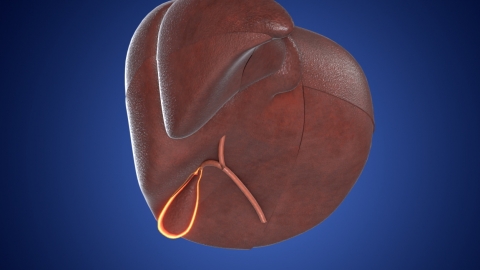What Are the 9 Foods That Should Not Be Eaten with Cholecystitis?
Generally speaking, there is no such thing as a list of "9 foods that cannot be eaten with cholecystitis." However, it's not recommended to eat fatty meats, deep-fried meatballs, animal brains, mustard, high-proof liquor, and similar foods. Detailed explanations are as follows:
1. Fatty Meats
Fatty meats are high-fat foods containing extremely high levels of fat. After consumption, the body must work hard to digest these fats, which can stimulate strong gallbladder contractions. Patients with cholecystitis already have inflammation in the gallbladder; during contraction, the gallbladder walls may experience additional irritation, possibly triggering or worsening abdominal pain symptoms. Therefore, fatty meats are not recommended.
2. Deep-Fried Meatballs
Deep-fried meatballs absorb large amounts of oil during preparation, making them a typical high-fat food. After consumption, they prompt the liver to secrete more bile, which must pass through the gallbladder to aid digestion, increasing the workload of the gallbladder. Inflamed gallbladders are prone to spasms under such conditions, causing discomfort; therefore, they should be avoided as much as possible.

3. Animal Brains
Animal brains contain very high levels of cholesterol, which requires bile for metabolism. Consuming large amounts of animal brains increases bile consumption, requiring the gallbladder to contract frequently to release bile, which can cause additional irritation to an already inflamed gallbladder,不利于 controlling inflammation and不利于 recovery from the condition.
4. Mustard
Mustard is a spicy, irritating food. After consumption, it can stimulate the gastrointestinal mucosa. This irritation may affect the gallbladder through nerve conduction, causing abnormal gallbladder contractions. For patients with cholecystitis, this may trigger abdominal pain or worsen existing inflammation, damaging gallbladder health.
5. High-Proof Liquor
High-proof liquor contains high concentrations of alcohol. Once ingested, alcohol must be metabolized by the liver, and this metabolic process may produce harmful substances that indirectly affect gallbladder function. Additionally, alcohol might stimulate gallbladder contraction, interfere with normal bile excretion, and easily lead to worsening symptoms of cholecystitis or even acute attacks. Therefore, alcohol consumption should be avoided.
In addition, patients with cholecystitis should also avoid eating foods such as cream cakes and butter as much as possible. At the same time, they should maintain regular eating habits in daily life and avoid overeating or binge eating.




